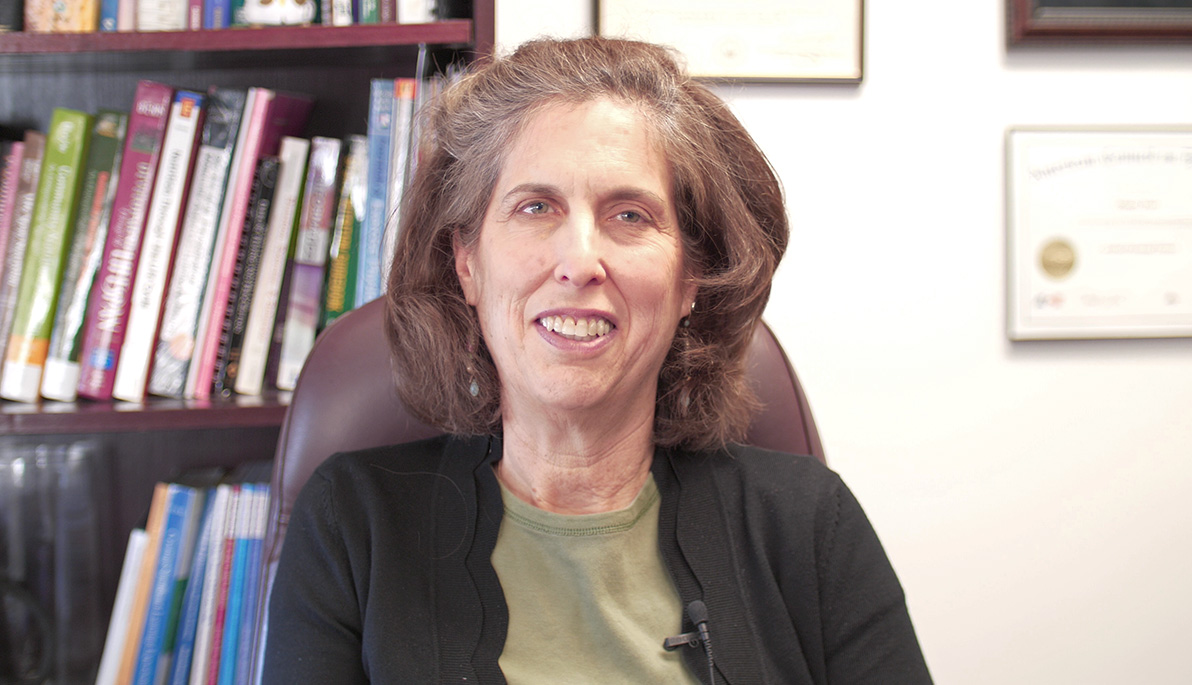News
Honoring Her Heritage
May 22, 2024
In honor of Jewish American Heritage Month, Mindy Haar, Ph.D., clinical associate professor and chair of interdisciplinary health sciences, reflects on her family’s journey to the United States and their contributions to their local communities.
Jewish American Heritage Month was established by several government organizations to recognize the contributions Jewish Americans have made to American culture, history, and society. While what first may come to mind is Ruth Bader Ginsberg’s stellar law career or Jonas Salk’s development of the polio vaccine, I also think of less famous people such as my late father, Marvin Myers, and my late father-in-law, Aaron Haar, who each helped enrich the fabric of both American and Jewish life.
These men’s lives spanned the early 20th century to the early 21st century—times that included hardship and tragedy but also great strides and accomplishments. Their parents arrived in their teens or early 20s, fleeing antisemitism in Europe, but had great hope for better lives for their American-born children. My father’s family planted roots in Boston. While his parents did not have the opportunity to get full educations, after attending Boston public schools, my father attended Boston University. Similarly, my father-in-law’s family in New York facilitated his opportunity to attend a specialized science high school.
An appreciation for the United States as a haven to live freely as a Jew was ingrained in both men as many family members who had remained in Europe were subsequently killed in the Holocaust. During World War II, my father-in-law joined the army and served as a true patriot. My father was too young at that time but as soon as he graduated from college and attended an officer training program, he joined the U.S. Coast Guard as a captain during the Korean War. An American flag always flew at our home on Memorial Day, Independence Day, and Veterans Day, and my father was active in veterans groups. After serving their country, both men ran successful businesses—my father-in-law, a men’s clothing store on the Lower East Side [in New York City], and my father, a children’s clothing factory in Brooklyn, N.Y. They employed others with fairness and generosity, many of whom were starting out new lives in America.
My father and father-in-law each went on to become patriarchs of families that include many teachers and health professionals who work for the good of the wider community. In addition, they led families steeped in Jewish tradition that included following kosher diets and observing the Sabbath. As Orthodox observance of the Sabbath defines refraining from work as not using electricity—unplugging from phones and computers and not driving or taking a train or bus—it can be challenging when part of the regular working world.
As I am finishing my 20th year at New York Tech, I am so appreciative of the support and accommodation I’ve had as someone whose religious practice may be different than others. While we know that our school is one of the most diverse U.S. colleges based on demographic data, the numbers don’t fully reflect the culture of tolerance and high regard for others that we find here. My father and father-in-law fought for just this type of environment—a place where people can be proud Americans, free to practice their religion, and respectful of those from a variety of ethnic backgrounds.




